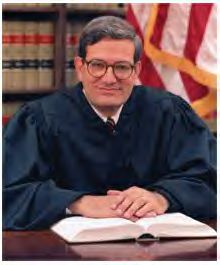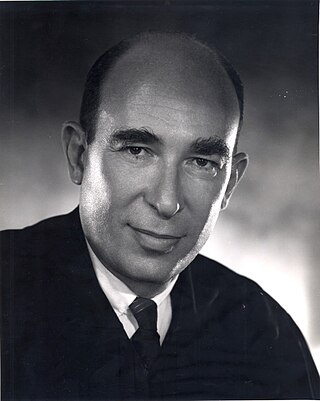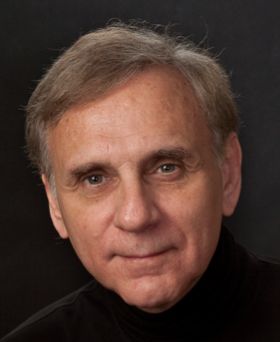Related Research Articles

Meditation is a practice in which an individual uses a technique – such as mindfulness, or focusing the mind on a particular object, thought, or activity – to train attention and awareness, and achieve a mentally clear and emotionally calm and stable state.
Mindfulness is the cognitive skill, usually developed through meditation, of sustaining meta-attention of the contents of one's own mind in the present moment. Mindfulness derives from sati, a significant element of Hindu and Buddhist traditions, and is based on Zen, Vipassanā, and Tibetan meditation techniques. Though definitions and techniques of mindfulness are wide-ranging, Buddhist traditions describe what constitutes mindfulness such as how past, present and future moments arise and cease as momentary sense impressions and mental phenomena. Individuals who have contributed to the popularity of mindfulness in the modern Western context include Thích Nhất Hạnh, Joseph Goldstein, Herbert Benson, Jon Kabat-Zinn, and Richard J. Davidson.

Buddhist meditation is the practice of meditation in Buddhism. The closest words for meditation in the classical languages of Buddhism are bhāvanā and jhāna/dhyāna.

José Alberto Cabranes is an American lawyer who serves as a senior United States circuit judge of the United States Court of Appeals for the Second Circuit and a former presiding judge of the United States Foreign Intelligence Surveillance Court of Review ("FISCR"). Formerly a practicing lawyer, government official, and law teacher, he was the first Puerto Rican appointed to a federal judgeship in the continental United States (1979).
Robert David Sack is a senior United States circuit judge of the United States Court of Appeals for the Second Circuit.
Contemplative education is a philosophy of higher education that integrates introspection and experiential learning into academic study in order to support academic and social engagement, develop self-understanding as well as analytical and critical capacities, and cultivate skills for engaging constructively with others.

Buddhism includes an analysis of human psychology, emotion, cognition, behavior and motivation along with therapeutic practices. Buddhist psychology is embedded within the greater Buddhist ethical and philosophical system, and its psychological terminology is colored by ethical overtones. Buddhist psychology has two therapeutic goals: the healthy and virtuous life of a householder and the ultimate goal of nirvana, the total cessation of dissatisfaction and suffering (dukkha).

Marc Rotenberg is president and founder of the Center for AI and Digital Policy, an independent non-profit organization, incorporated in Washington, D.C. Rotenberg is the editor of The AI Policy Sourcebook, a member of the OECD Expert Group on AI, and helped draft the Universal Guidelines for AI. He teaches the GDPR and privacy law at Georgetown Law and is coauthor of Privacy Law and Society and The Privacy Law Sourcebook (2020). Rotenberg is a founding board member and former chair of the Public Interest Registry, which manages the .ORG domain.

Janice Rogers Brown is an American jurist. She served as a United States circuit judge of the United States Court of Appeals for the District of Columbia Circuit from 2005 to 2017 and before that, Associate Justice of the California Supreme Court from 1996 to 2005. She is a member of the Federalist Society and frequently features at events hosted by the organization.

Wilfred Feinberg was a United States circuit judge of the United States Court of Appeals for the Second Circuit and previously was a United States District Judge of the United States District Court for the Southern District of New York.
Thomas G. Plante is the Augustin Cardinal Bea, S.J. University Professor of psychology on the faculty of Santa Clara University and adjunct clinical professor of psychiatry and behavioral sciences at Stanford University School of Medicine. His ideas have been covered in Time Magazine and other news media with regard to sexual abuse by Roman Catholic priests, a focus of some of his research and clinical practice. He has also conducted research on exercise psychology, and on the health effects of spiritual and religious practice.
The City University of New York School of Law is a public law school in New York City. It was founded in 1983 as part of the City University of New York. CUNY School of Law was established as a public interest law school with a curriculum focused on integrating clinical teaching methods within traditional legal studies.
Public interest law refers to legal practices undertaken to help poor, marginalized, or under-represented people, or to effect change in social policies in the public interest, on 'not for profit' terms, often in the fields of civil rights, civil liberties, religious liberty, human rights, women's rights, consumer rights, environmental protection, and so on.

Amishi Jha is a professor of psychology at the University of Miami.

Neil Thomas Proto is an American lawyer, teacher, lecturer, and author. He chaired Students Challenging Regulatory Agency Procedures (SCRAP) as a law student. He served in the Appellate Section of the Environment and Natural Resources Division in the U.S. Department of Justice. During the administration of President Jimmy Carter, he served as general counsel to the President's Nuclear Safety Oversight Committee. Proto was appointed a visiting lecturer at Yale University in 1988 and 1989. Since 1990, while in private practice in Washington, DC, he has been an adjunct professor at Georgetown University's McCourt School of Public Policy. In 2010, he was elected a Fellow in the Royal Geographical Society of London. In 2016, his one-person play, The Reckoning, Pecora for the Public, premiered in Seattle.
Mindfulness and technology is a movement in research and design, that encourages the user to become aware of the present moment, rather than losing oneself in a technological device. This field encompasses multidisciplinary participation between design, psychology, computer science, and religion. Mindfulness stems from Buddhist meditation practices and refers to the awareness that arises through paying attention on purpose in the present moment, and in a non-judgmental mindset. In the field of Human-Computer Interaction, research is being done on Techno-spirituality — the study of how technology can facilitate feelings of awe, wonder, transcendence, and mindfulness and on Slow design, which facilitates self-reflection. The excessive use of personal devices, such as smartphones and laptops, can lead to the deterioration of mental and physical health. This area focuses on redesigning and creating technology to improve the wellbeing of its users.
Janice Marturano is an author, former vice president at General Mills, and founder and executive director of the Institute for Mindful Leadership, a non-profit organization that educates business and organizational employees on strengthening the fundamentals of leadership excellence through mindfulness meditation, contemplative leadership practices and their practical applications in the workplace.

Strategic litigation, also known as impact litigation, is the practice of bringing lawsuits intended to effect societal change. Impact litigation cases may be class action lawsuits or individual claims with broader significance, and may rely on statutory law arguments or on constitutional claims. Such litigation has been widely and successfully used to influence public policy, especially by left-leaning groups, and often attracts significant media attention. One prominent instance of this practice is Brown v. Board of Education.
The National Justice Project (NJP) is a not for profit legal service established to promote human rights, social justice and to fight against disadvantage and discrimination in Australia through strategic legal action, effective advocacy and communication.

Richard Barry Sobol was an American lawyer who specialized in civil rights law. He worked primarily on desegregation cases in Louisiana.
References
- ↑ "Charles halpern | Profile".
- ↑ See James Ridgeway: “Who's Fit to Be Free?” The New Republic, February 4, 1967, 24–26; “The Rouse Case,” The New Republic, June 1, 1967, 5.
- ↑ For further discussion of the development of the right to treatment see Charles R. Halpern, “A Practicing Lawyer Views the Right to Treatment,” in “The Right to Treatment Symposium,” Georgetown Law Journal (special issue), March 1969, 782–817. See also “The Right to Treatment Symposium,” Georgetown Law Journal (special issue), March 1969.
- ↑ See Charles R. Halpern and John M. Cunningham, “Reflections on the New Public Interest Law: Theory and Practice at the Center for Law and Social Policy,” Georgetown Law Journal, May 1971, 1095–1126.
- ↑ See Colman McCarthy, “Laws, Lawyers, and the System,” Washington Post, October 14, 1970.
- ↑ See Gene I. Maeroff, “Dean Appointed, Moving City U’s Law School Closer to Reality,” New York Times, December 24, 1981. See also Aric Press, “A New Kind of Law School,” Newsweek, September 26, 91.
- ↑ For information on CUNY's innovative curriculum see Charles R. Halpern, “A New Direction in Legal Education: The CUNY Law School at Queens College,” Nova Law Journal, 10 (Winter 1986), 549–574
- ↑ Kathleen Teltsch, “Needy People Get New Ally in Foundation,” New York Times, March 27, 1989.
- ↑ For an account of the dialogues between the Dalai Lama and spiritual leaders of the American Jewish community see Rodger Kamenetz, The Jew in the Lotus: A Poet's Rediscovery of Jewish Identity in Buddhist India (San Francisco: Harper San Francisco, 1994).
- ↑ "Our History | the Center for Contemplative Mind in Society". Archived from the original on 2017-08-15. Retrieved 2017-08-14.
- ↑ "Susan P. Halpern".
- ↑ "Schedule of Classes".
- ↑ "Mindfulness Program Set to Break New Ground at Berkeley Law".
- ↑ "Home". mindfullawyerconference.org.
- ↑ "Home". transformjustice.net.